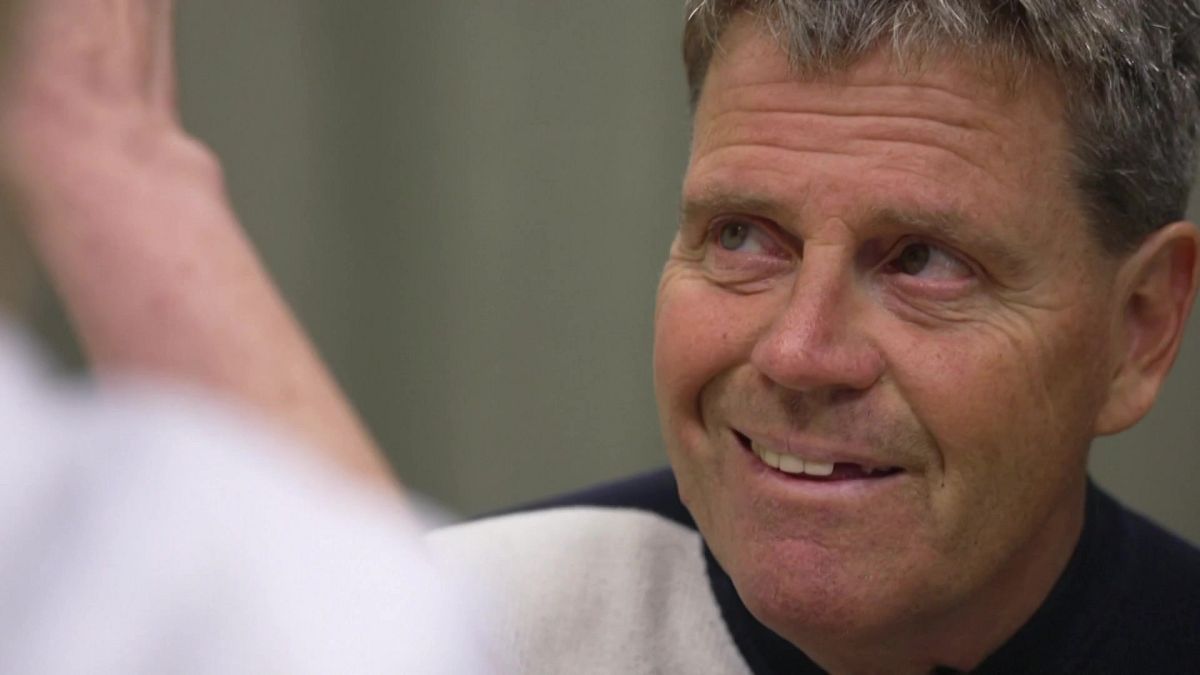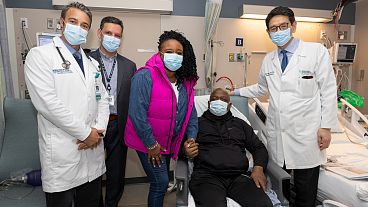Parkinson’s patient Thomas Matsson was the first in the world to receive 7 million lab-grown brain cells in 2023. Today, he can smell and play sports.
Researchers at Lund University in Sweden have successfully implanted 7 million lab-grown brain cells into a patient to treat Parkinson's disease.
Swedish resident Thomas Matsson was the first in the world to test the method about a year ago.
Matsson was diagnosed with Parkinson's when he was 42. For the last 17 years, he felt like he was walking through a syrup, he says.
"'Mister P,' the disease, would pull my neck one way when I was going the other," said Matsson.
Today, Matsson recognises smells again and plays sports.
"The syrup is gone. I’ve got my 7 million cells and they are starting to work now," said Matsson.
"I’ve reduced my medication for Parkinson’s. Before, everything was slow and everything was difficult," he added.
Matsson says he is hitting golf shots that he hasn’t been able to hit in 10 years.
"I do long-distance skating, slalom, cross-country skiing, padel tennis, and, above all, golf," he said.
"To be able to skate when you’ve had Parkinson’s for 20 years, not many people do that I think. And then 28 days in Spain where I played 25 rounds in 28 days, you can’t really do that when you’re healthy most of the time. Something happened. Something very good".
How does it work?
Parkinson’s disease is a neurodegenerative disorder that affects movement primarily due to the loss of cells that produce dopamine, which helps transmit signals that control movement and coordination as a neurotransmitter.
The cell therapy devised by researchers at Lund University involves exposing stem cells from fertilised eggs - called embryonic stem cells - to growth factors and signals they would normally receive during embryo development to direct them to become immature dopamine cells.
The cells are then implanted into a 4 mm area in the centre of the patient's brain, closest to the brain stem to replace the dopamine cells Parkinson’s patients have lost.
After a few months, they start sending out nerve fibres and producing dopamine.
"The vision is that it could be given as a one-time treatment and the hope is that the patients can reduce their medication, avoid side effects of the drug treatment and get a long-term good motor effect from the cells for life," Gesine Paul-Visse, a senior physician in neurology at Skåne University Hospital and adjunct professor at Lund University, told Swedish broadcast SVT in 2023 when the first trials started.
Matsson did not feel well immediately when he woke up from the 13-hour procedure. He suffered a psychosis for 10 days.
"Among other things, I escaped from the ward twice. The second time it was the police who drove me back. It’s not something I want to experience again. Absolutely not," Matsson said.
Whether it was an effect of the long exposure to anaesthesia or whether it had to do with his brain adjusting to the new brain cells is unknown.
Risk of brain tumours forming
So far, five subjects have undergone surgery using the researchers' lab-grown cells.
Soon three additional patients will receive a double dose, with 14 million brain cells each.
"There’s always a theoretical risk of tumours forming, which is likely to increase if you have a higher number of implanted brain cells," Paul-Visse said.
"Then there is a risk of over-medication, that you produce too much dopamine in the brain. I think this risk is extremely low," she added.
If all goes well with the first eight patients, the research team will continue with larger studies in collaboration with a pharmaceutical company.
"The interest from patients has been incredible. There are even patients living abroad who would have liked to move to Sweden to participate in this study. And we had to inform all patients that the recruitment for this study was closed," said Paul-Visse.
Matsson says he is 110 per cent certain that the research team will succeed.
"I am absolutely convinced, 110 per cent! And I hope that these scientists will eventually get their just rewards," he added.
The hope is that the cultured cells will be available as a medicine worldwide in seven to ten years.
"There is absolutely hope. Absolutely there is!" said Paul-Visse as a message to people living with Parkinson’s disease.
For more on this story, watch the video in the media player above.



